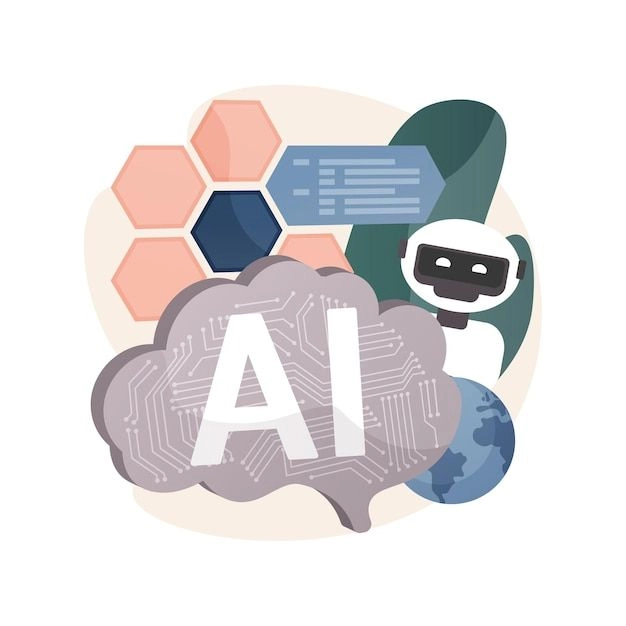THE INTERSECTION OF AI AND DIGITAL MARKETING: The Game Changer of Business

In today’s business landscape, staying ahead requires more than just great products or services. It calls for innovative ways to engage with customers, streamline operations, and make smarter decisions. One of the most exciting advancements making waves is the intersection of digital marketing and artificial intelligence (AI). AI is reshaping how businesses approach marketing, driving efficiency and delivering personalized experiences like never before. Let’s explore why the convergence of digital marketing and AI is a game changer for businesses and how it’s transforming the marketing world.
AI in Digital Marketing: What’s the Big Deal?
AI is not some distant futuristic concept—it’s already part of our daily digital marketing tools. From search engines to social media algorithms, AI helps businesses understand customer behaviors, predict trends, and optimize campaigns. AI’s remarkable ability to process massive amounts of data at lightning speed, allows marketers to make informed decisions in real-time.
This shift is crucial because modern customers expect personalized experiences. They don’t just want a product; they want solutions that fit their needs, delivered at the right moment. AI enables businesses to deliver on those expectations, whether through personalized ads, tailored content, or product recommendations based on browsing behavior.
Personalization at Scale: A Dream Come True
One of the biggest pain points in digital marketing has always been personalization. How can a business speak directly to the needs of an individual customer while reaching thousands or even millions of people? Before AI, creating personalized marketing strategies was a labor-intensive process, requiring significant time and manual effort.
Now, AI allows businesses to deliver personalization at scale. Using AI-powered tools, marketers can analyze customer data, preferences, and behaviors, crafting unique experiences for each customer. For example, AI can recommend products based on past purchases, customize email content to align with a customer’s interests, or even adjust website content in real time to match visitor behavior.
The result? Customers feel seen and understood, which leads to stronger relationships and higher conversion rates.
AI and Predictive Analytics: Looking Into the Future
One of the most game-changing aspects of AI in digital marketing is its ability to predict customer behavior. Through predictive analytics, AI uses past data to forecast future actions. This allows businesses to anticipate customer needs and tailor their marketing strategies accordingly.
For example, AI can predict which customers are most likely to make a purchase when they are most likely to engage, or even which products they’ll be interested in. These insights help businesses refine their marketing efforts, ensuring that their campaigns reach the right people at the right time.
This predictive power not only improves marketing efficiency but also enhances the customer experience by delivering relevant content and offers. It’s a win-win for both businesses and their audiences.
Content Creation and Optimization: AI as Your Creative Assistant
Content remains king in digital marketing, but consistently creating high-quality content can be challenging. This is where AI steps in as a creative assistant. While AI may not yet replace human creativity, it can help streamline content creation.
AI-powered tools like natural language processing (NLP) can analyze customer preferences and suggest content topics that are more likely to resonate with your audience. Some tools even assist in drafting content, writing product descriptions, or generating social media posts, making it easier to maintain a steady flow of engaging material.
Moreover, AI can optimize content for search engines, ensuring it ranks higher on search results pages. By analyzing search trends, AI can recommend keywords and content structures that align with what users are looking for, helping businesses increase visibility and attract more organic traffic.
Automating the Mundane: Freeing Up Time for Strategy
One of AI’s most valuable contributions to digital marketing is automation. It takes over repetitive tasks—such as sending emails, posting on social media, or managing ad campaigns—allowing marketers to focus on more strategic and creative activities.
For instance, AI can automate email marketing by segmenting your audience and sending personalized messages based on customer behavior. AI tools can also optimize ad spend by dynamically adjusting bids in real-time, ensuring you get the best return on investment (ROI) without constant manual input.
By automating these everyday tasks, businesses can not only save time and resources but also improve their overall marketing efficiency. It’s like having a marketing assistant that never sleeps, constantly optimizing your campaigns for the best possible results.
AI-Powered Customer Service: Instant and Intelligent
Another significant shift in the digital marketing world is AI’s impact on customer service. AI-powered chatbots and virtual assistants are now commonly used to engage with customers 24/7, offering instant responses to queries, solving problems, and guiding users through the sales process.
These bots are no longer limited to scripted responses. They can now understand customer intent, learn from past interactions, and provide more personalized support. This means businesses can offer a seamless customer experience, even outside of regular business hours, leading to higher satisfaction and increased sales.
The Human Element: Why AI Isn’t Replacing Marketers
While AI offers incredible tools for automation, personalization, and efficiency, it’s important to remember that AI isn’t replacing human marketers. Instead, it’s amplifying their abilities. Marketing is, at its core, about understanding people, building relationships, and communicating in ways that resonate on a personal level.
AI can handle data processing and task automation, but it can’t replicate human creativity, empathy, or intuition. The key to success is combining the power of AI with human insights, creativity, and strategy. Businesses that leverage AI while maintaining a human touch will be the ones to thrive in this new digital age.